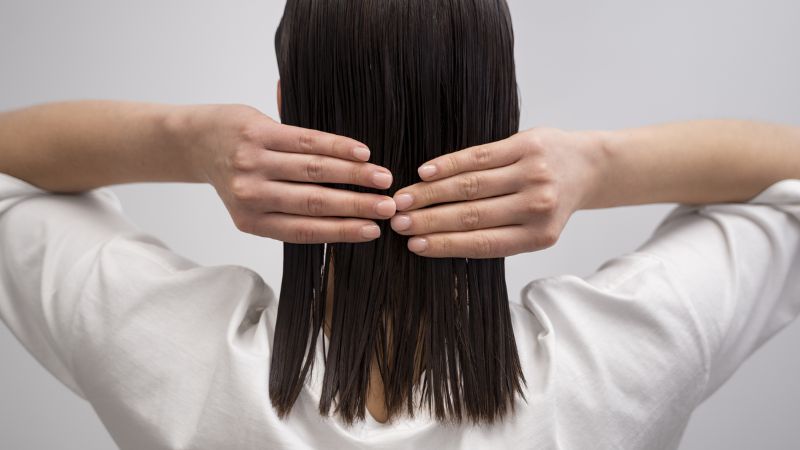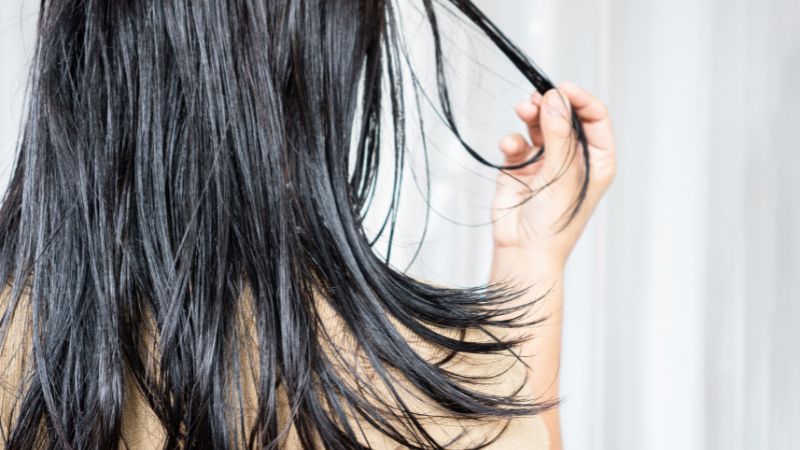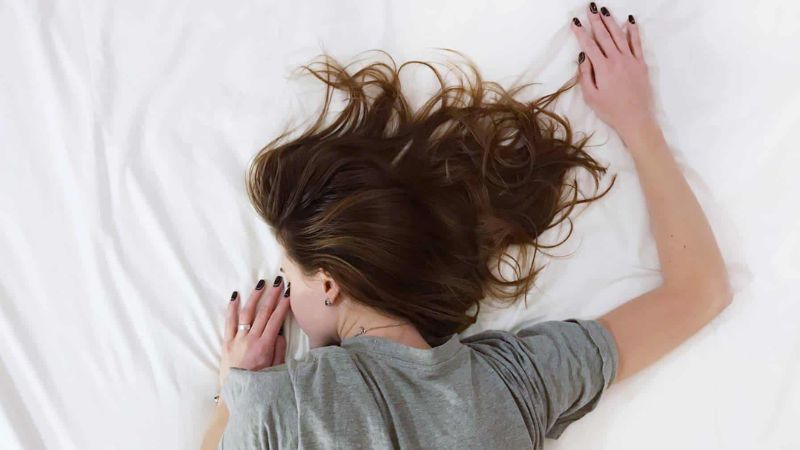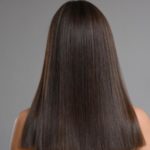Sleeping with wet hair is a common habit for many people, but it’s important to break this habit as soon as possible. Doing so can have serious consequences for your health and hair. Let’s dive into the details through the following article.
1. Should You Sleep with Wet Hair?
Dandruff and Scalp Infections
Many people assume that sleeping with wet hair will only make them prone to catching a cold. However, Dr. Shah, a board-certified emergency physician and co-founder of Push Health, believes that it poses a higher risk of developing scalp infections.
The Malassezia fungus, naturally found on the scalp, can thrive in a damp environment, leading to dandruff and scalp inflammation. Hence, ensuring your hair is completely dry before hitting the hay is crucial.
Moreover, your pillow is a haven for mold and mildew, especially in warm and humid conditions, thanks to your pillowcase and sweat. Research reveals that an average pillow can harbor between 4 to 16 types of fungi, including Aspergillus fumigatus, a dangerous fungus that can cause severe infections in immunocompromised individuals and exacerbate asthma.
 Should You Sleep with Wet Hair?
Should You Sleep with Wet Hair?
Severe Hair Breakage
Sleeping with wet hair will not only give you a messy mane in the morning but also put your hair at risk of damage.
Dr. Adarsh Vijay Mudgil, a dermatologist, points out that hair is at its weakest when it’s wet. When you sleep, wet hair rubs against your pillow and bedding, making it prone to breakage. This risk increases if your hair is braided or tied up, adding more pressure to the strands.
Thus, it’s best to avoid sleeping with wet hair altogether. If, for some reason, you must sleep with damp hair, let it air dry and stay loose to minimize friction and protect your tresses.
2. Will Sleeping with Wet Hair Make You Sick?
The notion that sleeping with wet hair will make you fall ill is not entirely accurate. While many people believe this, there is no scientific evidence to support a direct link between the two, according to Dr. Chirag Shah, an emergency physician and co-founder of Push Health.
In reality, colds are caused by viral infections. These viruses spread through tiny droplets in the air when an infected person coughs, sneezes, or talks. You can also contract the virus by touching contaminated surfaces or coming into direct contact with an infected individual.
 Will Sleeping with Wet Hair Make You Sick?
Will Sleeping with Wet Hair Make You Sick?
3. What to Do If You Have to Sleep with Wet Hair
If, for some reason, you can’t completely dry your hair before bed, consider the following tips to minimize damage and keep your locks healthy:
Coconut Oil Treatment
Applying coconut oil to your hair creates a protective barrier, reducing water absorption and minimizing breakage and damage. However, avoid using coconut oil if you have scalp issues like eczema or excessive sebum production, as it may worsen these conditions.
Use a Conditioner
Conditioners help nourish and protect your hair cuticles, reducing friction and making it easier to detangle. Chemically treated or colored hair particularly benefits from regular conditioning.
 What to Do If You Have to Sleep with Wet Hair
What to Do If You Have to Sleep with Wet Hair
Dry and Detangle Your Hair as Much as Possible
Take the time to blow-dry your hair or let it air dry as much as possible to reduce the amount of water left in your hair. Gently detangle your hair before bed to prevent hair tension and breakage.
Silk Pillowcase
A silk pillowcase has a smoother surface than a regular cotton one, reducing friction and minimizing hair breakage and tangles while you sleep.
Sleeping with wet hair is not ideal for your health or your hair. However, if you can’t avoid it, the above tips will help minimize damage and keep your locks healthy.
Source: Vinmec.com
Exploring the Advantages of Blow Drying Hair
Are you looking for ways to speed up the process of drying your hair? In this article, we will explore the science of blow-drying and why it is such an effective solution. Get ready to discover the scientifically proven techniques that make your blow-dryer the ultimate tool to quickly dry your hair!
Three Important Hair and Scalp Care Requirements in Vietnam
In tropical areas where high temperatures and humidity are common, many people have been struggling to care for their hair and keep it healthy. For those who are frustrated with dandruff, breakage, and other damage, there is hope for strong, shiny hair. With the right tips and techniques, tangled, frizzy hair can be transformed into smooth, lustrous locks.





































